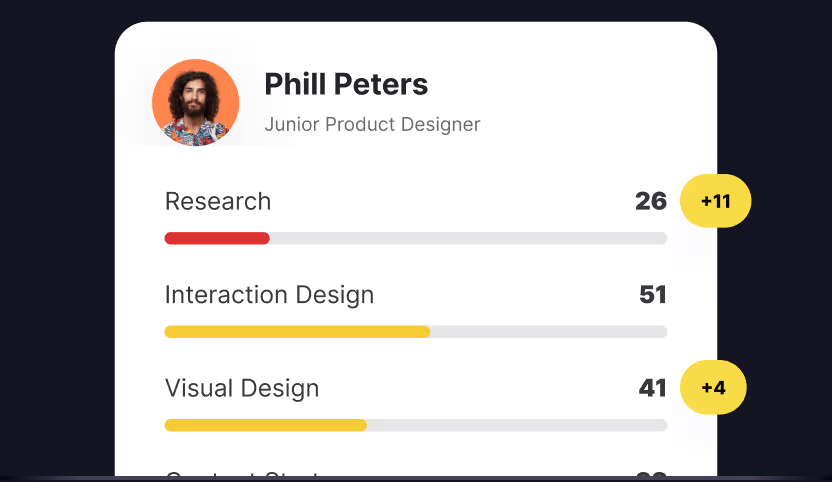My background
I always knew a career in technology was my calling, but finding my exact path took time and exploration. When I discovered UX design in early 2021, everything clicked. The perfect intersection of creativity, problem solving, and technology resonated deeply with me. Despite being 32 years old with an established career path behind me, I made the bold decision to pivot professionally.
My transformation began with a deliberate approach. Starting in August 2021, I immersed myself in studying design principles, creating projects for my portfolio, and building a professional network in the UX community. This three-pronged approach became the foundation for successfully navigating what many consider a challenging mid-career transition.
The challenges I faced
The most significant obstacle I encountered wasn't mastering new skills but rather determining where to begin. The UX learning landscape presented an overwhelming array of options without clear direction.
The design education market offered countless resources: bootcamps promising quick results, university programs requiring significant time investments, books covering theory without practical application, and scattered online tutorials lacking cohesion. This fragmentation made it difficult to develop a structured learning approach that would build professional-level competencies.
Without a clear roadmap, I risked:
- Developing inconsistent skills with critical knowledge gaps
- Investing time in outdated methodologies
- Missing industry-standard practices
- Building a portfolio that failed to demonstrate professional capabilities
Finding my learning solution
My breakthrough came through research and community recommendations. While reading an article by an established UX professional about effective learning pathways, I discovered Uxcel among their recommended resources for aspiring designers.
The platform immediately addressed my primary challenges by offering structure without requiring full-time commitment. Rather than presenting another overwhelming option, Uxcel provided a systematic approach to skill development that integrated seamlessly into my existing schedule while maintaining a full-time job.
Why Uxcel made the difference
The platform transformed my learning experience through several key differentiators that perfectly matched my needs as a career-changer with limited available time.
The concise, interactive lesson format became instrumental in maintaining consistent progress. I could complete meaningful learning modules during lunch breaks, commutes, or short evening sessions without sacrificing comprehension or retention.
This approach enabled me to:
- Maintain consistent daily practice
- Build skills incrementally without overwhelm
- Apply concepts immediately to portfolio projects
- Track concrete progress toward professional competency
My transformative results
The structured, accessible approach to learning accelerated my career transition timeline significantly. Within months, I developed both the technical skills and professional confidence necessary to pursue UX positions.
My consistent practice regimen transformed me from an interested novice to a competent practitioner capable of addressing real-world design challenges. The combination of theoretical knowledge and practical application created a foundation for continued professional growth that extends beyond initial skill acquisition.
My advice for career changers
For professionals considering a similar transition, I emphasize two complementary approaches that accelerated my development:
First, establish a daily design practice. Consistency matters more than duration. Even 15-30 minutes of focused skill development compounds remarkably over time when maintained daily.
Second, develop an analytical eye for the designed world around you. I consistently evaluate digital experiences I encounter, asking questions like: How might this be improved? What assumptions informed these decisions? How would different user needs change this solution?
This dual approach of creation and critical analysis develops both the technical and strategic thinking necessary for successful UX professionals. Through structured learning and deliberate practice, a career transition at any age becomes not just possible but immensely rewarding.


